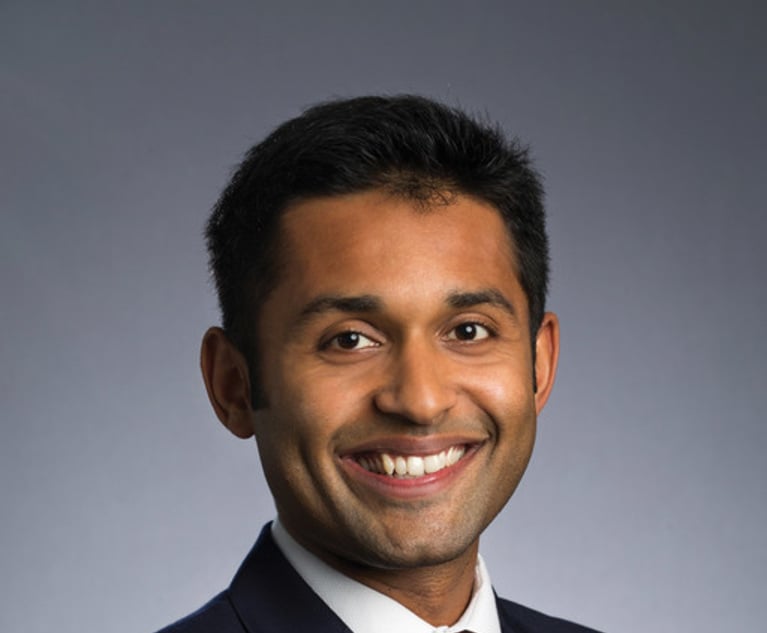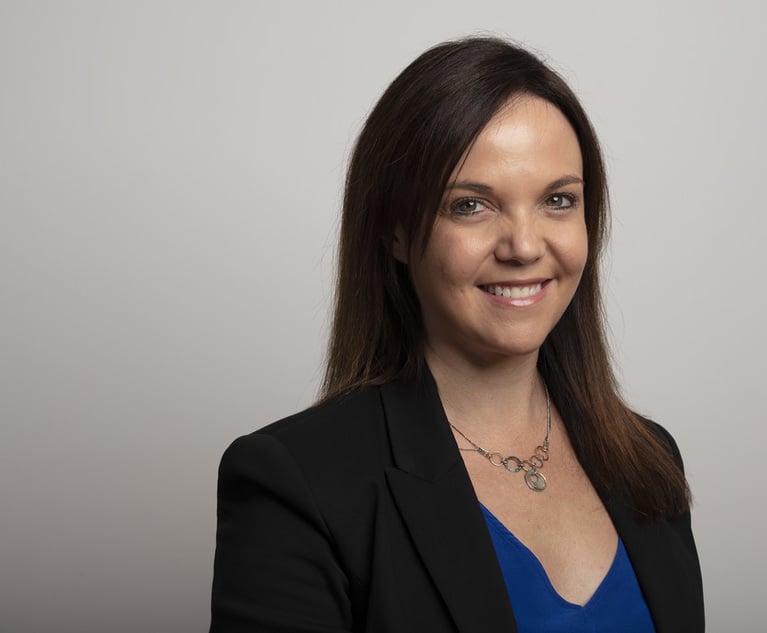Former Hausfeld Partner Establishes Litigation Funder in Germany
Profin, a litigation funder backed by a triple-digit million euro sum provided by an unnamed private equity firm, is looking to benefit from the Dieselgate emissions scandal.
December 20, 2019 at 06:21 PM
3 minute read
Christopher Rother, a former managing partner at Hausfeld, has established a litigation funding firm in Manheim, Germany.
Rother joined Hausfeld in 2016 when the U.S. firm set up a Berlin office in an effort to bundle thousands of consumer claims against Volkswagen. Hausfeld chairman Michael Hausfeld saw an opportunity for the firm in the Volkswagen emissions scandal, dubbed Dieselgate. In 2015, Volkswagen had admitted to having intentionally programmed diesel engines installed in millions of cars globally to skirt U.S. emissions standards.
Rother said he decided to leave Hausfeld to launch Profin, a litigation funder backed by a triple-digit million euro sum provided by an unnamed private equity firm. "My goal was to establish Hausfeld in Germany, and I reached that goal in a very short time," Rother said in a telephone interview. "And once you've reached a goal, it's time for a new goal."
The market for litigation funding in Germany has grown in recent years, according to Rother, who is Profin's CEO and managing director. "When I entered the market with Hausfeld, it was underdeveloped," Rother said. "In many ways, it is more demanding than the U.S. or U.K. markets," as German law lacks the provision for class action suits.
VW owners are left with a choice: They can join the newly created Musterfeststellungsklage, a model declaratory action intended to facilitate collective redress for consumers in cases of mass damages caused by large companies. Or, they can bring individual suits against VW. The model declaratory action allows qualified institutions, such as consumer organisations, to bring actions against companies to determine the validity of consumers' claims against the company. This means owners will still have to take separate action against Volkswagen.
Rother is betting that representing the thousands of VW owners who don't want to join the declaratory action will be lucrative enough to sustain Profin. Using a number of legal tech tools, he believes he can find both the customers and determine the regional courts that have a record of handing down judgments against Volkswagen. He said a settlement is the most likely outcome for these claims, making it easier and faster for consumers to collect a payout from Volkswagen.
Rother said the need for litigation funding in Germany will continue long after Dieselgate's resolution: "Consumer claims will always be interesting as long as the financial impact is high enough," he said.
This content has been archived. It is available through our partners, LexisNexis® and Bloomberg Law.
To view this content, please continue to their sites.
Not a Lexis Subscriber?
Subscribe Now
Not a Bloomberg Law Subscriber?
Subscribe Now
NOT FOR REPRINT
© 2025 ALM Global, LLC, All Rights Reserved. Request academic re-use from www.copyright.com. All other uses, submit a request to [email protected]. For more information visit Asset & Logo Licensing.
You Might Like
View All
Goodwin's Singapore Private Equity Partner Leaves to Join Key Client Hillhouse Investment


Trending Stories
- 1Gen AI and Associate Legal Writing: Davis Wright Tremaine's New Training Model
- 2Departing Attorneys Sue Their Former Law Firm
- 3Pa. High Court: Concrete Proof Not Needed to Weigh Grounds for Preliminary Injunction Order
- 4'Something Else Is Coming': DOGE Established, but With Limited Scope
- 5Polsinelli Picks Up Corporate Health Care Partner From Greenberg Traurig in LA
Who Got The Work
J. Brugh Lower of Gibbons has entered an appearance for industrial equipment supplier Devco Corporation in a pending trademark infringement lawsuit. The suit, accusing the defendant of selling knock-off Graco products, was filed Dec. 18 in New Jersey District Court by Rivkin Radler on behalf of Graco Inc. and Graco Minnesota. The case, assigned to U.S. District Judge Zahid N. Quraishi, is 3:24-cv-11294, Graco Inc. et al v. Devco Corporation.
Who Got The Work
Rebecca Maller-Stein and Kent A. Yalowitz of Arnold & Porter Kaye Scholer have entered their appearances for Hanaco Venture Capital and its executives, Lior Prosor and David Frankel, in a pending securities lawsuit. The action, filed on Dec. 24 in New York Southern District Court by Zell, Aron & Co. on behalf of Goldeneye Advisors, accuses the defendants of negligently and fraudulently managing the plaintiff's $1 million investment. The case, assigned to U.S. District Judge Vernon S. Broderick, is 1:24-cv-09918, Goldeneye Advisors, LLC v. Hanaco Venture Capital, Ltd. et al.
Who Got The Work
Attorneys from A&O Shearman has stepped in as defense counsel for Toronto-Dominion Bank and other defendants in a pending securities class action. The suit, filed Dec. 11 in New York Southern District Court by Bleichmar Fonti & Auld, accuses the defendants of concealing the bank's 'pervasive' deficiencies in regards to its compliance with the Bank Secrecy Act and the quality of its anti-money laundering controls. The case, assigned to U.S. District Judge Arun Subramanian, is 1:24-cv-09445, Gonzalez v. The Toronto-Dominion Bank et al.
Who Got The Work
Crown Castle International, a Pennsylvania company providing shared communications infrastructure, has turned to Luke D. Wolf of Gordon Rees Scully Mansukhani to fend off a pending breach-of-contract lawsuit. The court action, filed Nov. 25 in Michigan Eastern District Court by Hooper Hathaway PC on behalf of The Town Residences LLC, accuses Crown Castle of failing to transfer approximately $30,000 in utility payments from T-Mobile in breach of a roof-top lease and assignment agreement. The case, assigned to U.S. District Judge Susan K. Declercq, is 2:24-cv-13131, The Town Residences LLC v. T-Mobile US, Inc. et al.
Who Got The Work
Wilfred P. Coronato and Daniel M. Schwartz of McCarter & English have stepped in as defense counsel to Electrolux Home Products Inc. in a pending product liability lawsuit. The court action, filed Nov. 26 in New York Eastern District Court by Poulos Lopiccolo PC and Nagel Rice LLP on behalf of David Stern, alleges that the defendant's refrigerators’ drawers and shelving repeatedly break and fall apart within months after purchase. The case, assigned to U.S. District Judge Joan M. Azrack, is 2:24-cv-08204, Stern v. Electrolux Home Products, Inc.
Featured Firms
Law Offices of Gary Martin Hays & Associates, P.C.
(470) 294-1674
Law Offices of Mark E. Salomone
(857) 444-6468
Smith & Hassler
(713) 739-1250










